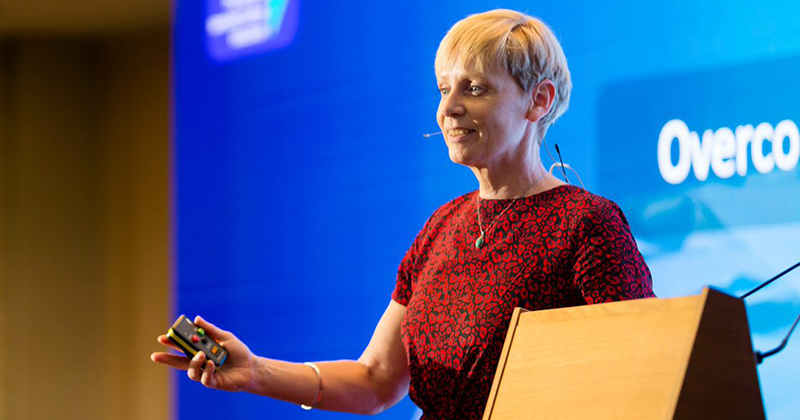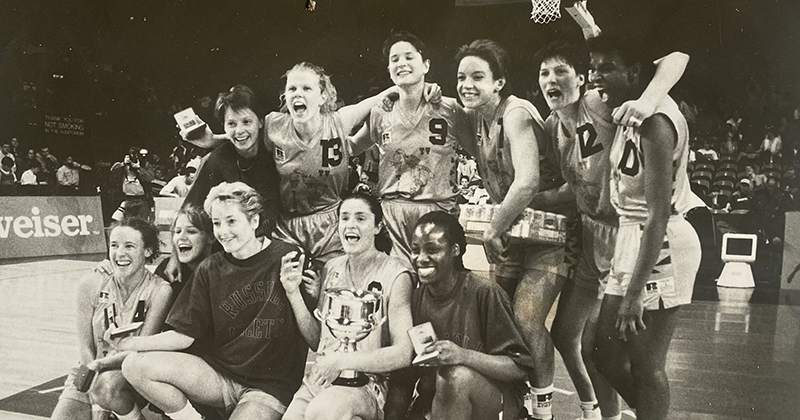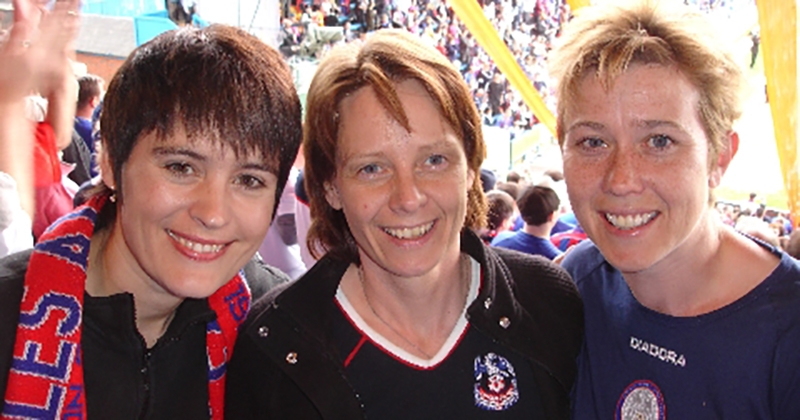Clare Howard, chief executive of Natspec, the body representing specialist colleges, is determined to get their voices heard. But she has been having a tough time of it lately.
Further education may feel overlooked by the DfE when compared with schools, but specialist colleges sometimes feel like the ultimate Cinderella service of the education world. Yet so much of the DfE’s SEND policy agenda depends on them, and it could make or break them right now.
Although around 10 per cent of the 80,000 16 to 25-year-olds with education, health and care plans (EHCPs) attend a specialist college, the special educational needs and disabilities (SEND) and alternative provision (AP) green paper, touted as the solution to fix the broken 0-25 SEND system, failed to mention specialist colleges at all.
The subsequent improvement plan, unveiled in March, did mention reviewing how specialist colleges could be more integrated, but Howard is now concerned that any commitment to recognise the part played by specialist colleges is being overlooked.
And, while national headlines have been focused on reinforced autoclaved aerated concrete (RAAC) in school buildings, the issue is of concern to specialist colleges too, but they have not all been able to report whether RAAC is in their estate.
Despite the DfE’s urgent plea for surveys looking for RAAC to be completed, specialist college staff have “struggled to access” the DfE’s survey portal. They also appear to be blocked from the capital funding for mitigation works provided to other education bodies.
“This is a major omission from DfE policy which needs to be rectified urgently,” says Howard.
She points out how, if their buildings did collapse due to RAAC, it would be harder for specialist colleges to evacuate their vulnerable students.
So far, only one specialist college, Royal College Manchester, has been recorded by the DfE as having RAAC on site. It was forced to move all students from one building to another over Easter.
But some 58 per cent of specialist college buildings need “urgent repair”. And they are also not eligible for the £1.5 billion FE capital transformation fund.

‘An afterthought’
Howard appreciates that hers is a complex sector for ministers to get their heads around, partly because of the wide mix of different types of SEND provision. Most settings, although called “colleges”, are charities or non-profit companies.
Although they are publicly funded, they have never had an official legal status of their own, so their governance arrangements vary.
Getting the DfE to understand how these colleges operate is not helped by the revolving door of ministers; the latest SEND minister, David Johnston, is the seventh to oversee the SEND reforms since a landmark review of the “broken” system was launched in 2019.
“Because the need in schools is so acute, a lot of policy and data collection is always focused on schools,” Howard says. “Officials are so focused on trying to solve the five to 16 and early years problems, they don’t have the capacity or expertise to look at [SEND in] FE. We’re a bit of an afterthought.”
While the DfE has been looking the other way, the specialist college sector has been rapidly expanding. When Howard was appointed to lead Natspec in 2016, it had 75 members. Now it has over 120, catering for around 8,000 students, reflecting the rapid rise in the number of young people with EHCPs.
And demand is only likely to keep soaring over the next decade as the young children currently being identified with SEND needs reach college age.
Visiting specialist colleges is the part of her job that Howard enjoys the most, and she was “desperate” to get back to those visits after Covid. She is on a mission to visit all Natspec’s members and has managed 95 so far. “The trouble is that new ones keep joining!” she says.
They range from newer colleges serving just 10 students to more established institutions with up to 400. It is “almost impossible” to describe a typical specialist college, she says, as they are all “so different”.
Some do significant outreach work in students’ homes or workplaces, with multi-disciplinary teams working across education, health and care. Some specialise in a particular need, like autism or visual impairment, while others have a particular therapeutic approach or a vocational specialism.
On Howard’s visits, she “could be arriving at a business park, a retail outlet, hotel, pub, farm, buildings in residential areas, heritage or visitor centres – or anything in between”.

‘False economy’ growth
Rather than celebrating, all these new specialist colleges are a cause of “concern” for Howard. Local authorities which hold the purse strings have been asking schools – and in some cases care providers, charities and even parent groups – to open post-19 centres which then become specialist colleges with an Education and Skills Funding Agency (ESFA) contract.
Although councils assume “they’ll get it cheaper” that way, the set-up and recruitment costs make it a “false economy” and “not the best way of planning new provision”.
Natspec would rather see more outreach and satellite sites being built through existing providers. They have published advice on their website designed to warn those interested in setting up new provision “just to be really careful”.
“Quite often, when schools open [specialist] colleges, they get a shock how different FE is from school provision,” Howard says.
New specialist colleges only get inspected by Ofsted once the ESFA provides a contract.
But because so many councils are yet to put new providers forward for this, “we are discovering quite a few unregistered providers”. It is a “big issue … and makes it difficult to properly assess sufficiency. We want to have a decent understanding of specialist provision.”
And, when these providers are inspected, Howard says they “sometimes find it difficult to get up to speed quickly enough”, and whilst some do really well at first inspection (two have achieved outstanding judgements), “others take longer before they are graded good”.

Transition turmoil
The pandemic hit specialist colleges hard, as they were scrambling to safeguard their vulnerable cohort and decipher changing guidance. It was also a challenging time in Howard’s life. In March 2020 she found a lump in her breast and spent much of the pandemic receiving chemotherapy.
Since then, the sector has been hit by staffing shortages, blockages in the SEND system, the energy crisis, late placements for students and councils increasingly reluctant to pay the high-needs funding that these colleges need.
One of the biggest challenges now is the mounting uncertainty over students’ transitions in and out of colleges.
Due to delays getting EHCPs updated, which legally should be done by March each year (but “that never happens”), colleges are unsure in August how many students to expect and so cannot then employ the right staffing numbers. This has been an issue since Howard started at Natspec, but higher demand and a national shortage of educational psychologists means the problem is getting worse.
On occasion, provision has been “lost” because “places aren’t confirmed early enough, and the colleges haven’t had time to recruit and budget for the staff they need”.
Then there is the transition out of college once students have achieved their educational outcomes, which is becoming harder because the services they require – social care, supported living or employment or volunteering opportunities – are “not coming together as they should”.
“Often, it’s the postcode lottery of local authorities. The pressures on local government are massive right now.”
Sport is Howard’s second passion after FE. She spent much of her early career working with organisations to boost its uptake.

Sports focus
But, as a keen basketball and netball player, playing sports has cost her dearly. She has had five operations since 2003 on her now “very well scarred” knees. The last one was in 2021 while she was recovering from cancer.
Knee trouble has not put her off sport, however. She is now running, skiing, open water swimming and even back playing back netball and basketball occasionally.
Howard says the need to be active was “engrained” within her from an early age. She has “no idea” whether she would have been labelled hyperactive as a child today, “but I’m very pleased that I wasn’t diagnosed with anything or put on drugs”.
Sport “definitely helped” her as an outlet for her “frustrations”. Her history and politics degree at Reading University, specialising in American racial violence, involved “few lectures”. This left her free to “play basketball all day”.

Rebellious leanings
Rebelling against authority has also been a theme in her life. Despite coming from a family of teachers, she was not afraid to give her own teachers at school in Croydon a hard time. She challenged “poor decision-making” and “injustice” at a time when pupils were “still caned and thrown against gym walls”.
“I got into arguments with teachers if I felt they weren’t listening to me. My team giggle at me now when they hear my school stories.”
She set out to follow in her family’s footsteps and did a PGCE, but never got her NQT after getting a job with the Sports Council (Now Sport England) as a regional officer. She went on to strategic planning roles with different organisations and became fascinated by the interconnection of systems.
It all harks back to her love of Rubik’s Cubes as a child. “I love wicked problems, I love complexity,” she says.
She came to realise that, to find a solution, you must first define the complexity of the question.
Howard’s rebel leanings came out again while working for PMP Consultancy, which grew from a team of eight to a “corporate machine” in her seven years there. By then a mum of three, craving better work-life balance, she began “rejecting authority” at the firm, which has since gone bust.
She formed her own consultancy firm, Prospects4Sport, bringing on board some former colleagues. One project involved doing a national review of college sport, which led to her next career move, as head of sport policy at the Association of Colleges, just before the 2012 London Olympics.
Moving onto her current role was a “massive learning curve”, as Howard was the first chief to join Natspec without a specialist college background.
She has grown her staff from a single part-time post to a team of 11, and an additional network of more than 20 associates for training and development.
As well as undertaking lobbying and policy work, Natspec provides CPD and assistive technology advice and is one of four national Centres for Excellence in SEND.
Howard says that Natspec always strives to deliver for their members, but “the strength of the organisation is in the networks, and member colleges never cease to amaze me by how they support each other”.









Your thoughts